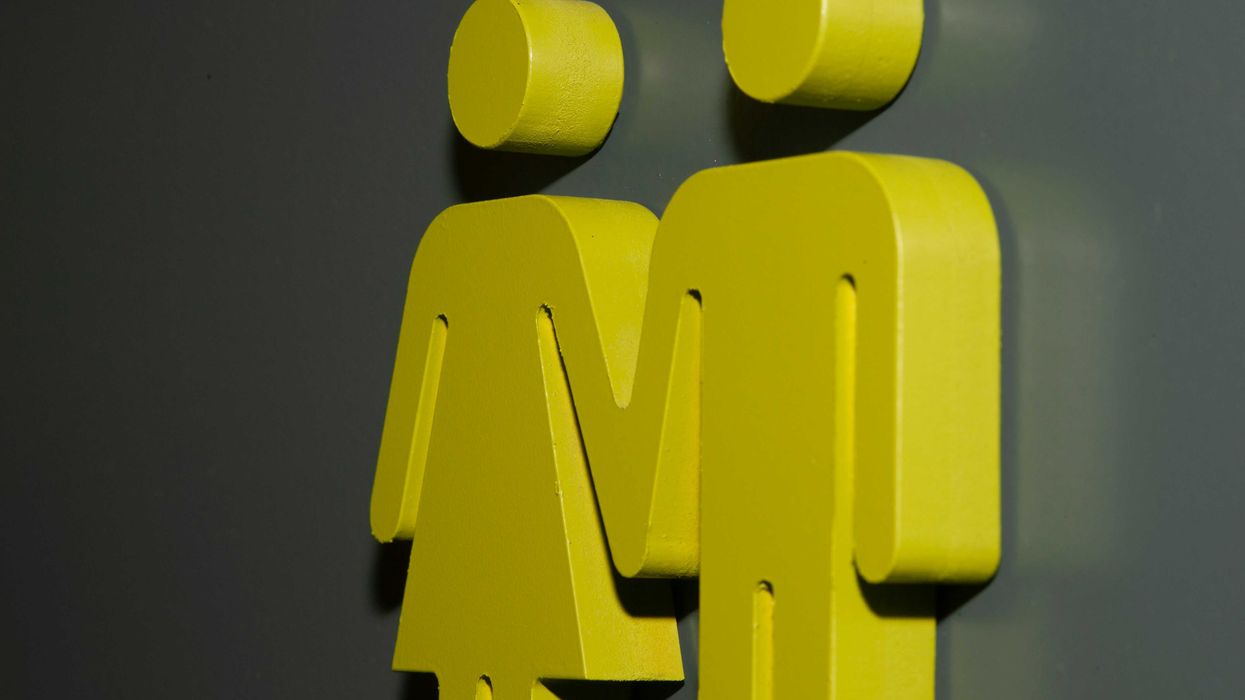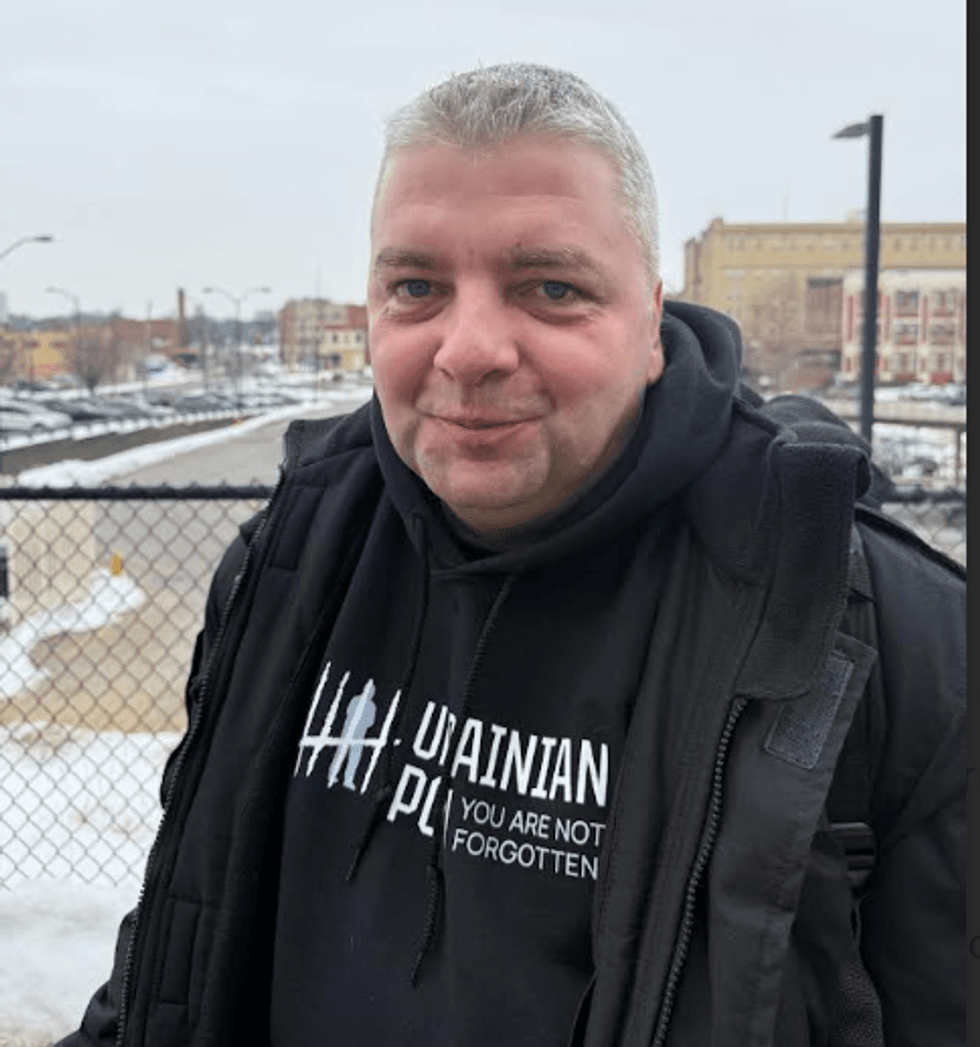As Caster Semenya recently ended her seven-year legal battle to compete as the woman she has always been, I was reminded of being in the Santiago, Chile airport in pre-COVID 2020, on my way to a weeklong trek across Patagonia National Park. Walking into a women’s restroom, I was accosted by a group of women shouting, “¡Es para mujeres!” This is for women!
I am a 5’10” cisgender woman. My hair was short at the time, and I was wearing baggy sweatpants and a sweatshirt. I am also Black. This was not the first time I had been mistaken for a man. Summoning the remnants of my high school Spanish, I shouted back, “¡Yo soy mujer!” I am a woman.
The global rise in transphobia has been tightly coupled with a rigid policing of womanhood and femininity, with calls from both right and left to protect the sanctity of women’s spaces. During last year’s Summer Olympics, Algerian boxer Imane Khelif became the target of vicious online attacks from prominent figures like J.K. Rowling, claiming she was a man and demanding she release her sex test results. In August, a cisgender Minnesota teenager was forced to reveal her breasts to a restaurant server trying to kick her out of a women’s restroom. And French president Emmanuel Macron and his wife Brigitte recently announced they would submit “scientific evidence” and pregnancy photos in response to allegations by rightwing influencer Candace Owens that Brigitte was born a man. These cases share a similar faulty assumption: that womanhood is a biological fact that can be proven or disproven.
Scientific reality is much more complicated. There are certainly male and female biological traits—XY vs XX chromosomes, genitalia, hormone levels—but plenty of women do not possess every “female” trait. Take female athletes who only discover their high testosterone or XY chromosomes (an intersex trait known as androgen insensitivity) after being subject to invasive competition-related medical testing. Many lived and competed their whole lives as women, had external female anatomy, and yet were accused of not being female enough. And what of other supposedly definitive female traits? Are women born without a uterus or women who undergo hysterectomies not female enough? What about those with small breasts or mastectomies, or those who are taller or more muscular than average? The reality is that there is no singular defining biological marker or threshold of womanhood. There is only the societal standard: Thin but curvy in the right places. Fertile. White.
Black and brown women have always had their gender policed and questioned to a higher degree than white women. It is a stereotype that goes back to slavery and colonialism, a justification for the horrific physical labor and violence that women of color were subjected to. Prominent cis Black women such as Michelle Obama and Megan Thee Stallion have been called men or trans and “not real women.” World Athletics has imposed targeted testosterone testing of “suspicious” female athletes – disproportionately women of color, of course – based in part on a since-corrected study showing a relationship between testosterone levels and performance in elite female athletes (the correction found no association). Women targeted by these rules, like runner Annet Negesa, were sometimes coerced into surgical interventions and hormone treatments that derailed their health and careers.
Attempts to enforce a gender binary are scientifically unsound and catastrophically harmful, so why are so many people, including women, so obsessed with trying? The claim is that such efforts protect women. But whom do we need protecting from? Why are trans women seen as a threat when they are even more in need of protection than cis women? Trans women in the U.S. are four times more likely to experience violent crime, with Black trans women at even higher risk. Furthermore, there is no link between trans-inclusive bathrooms and violence against women. In fact, trans-discriminatory bathroom policies put trans youth at higher risk for sexual assault. Meanwhile, while fearmongering about “men competing in women’s sports,” the U.S. administration continues its assault on women’s health, from unsupported claims about Tylenol during pregnancy to reviewing a perfectly safe abortion pill.
If we truly want to protect women, rather than policing who is a woman, we must demand justice for all women, healthcare for all women, and inclusion for all women. Cis athletes should defend the inclusion of trans athletes, following the lead of Simone Biles, who publicly criticized Riley Gaines for her mockery of trans women athletes. Rather than bowing to political pressure, the International Olympic Committee and other sports committees must eliminate testosterone testing for female athletes, as research shows no clear advantage for trans women or women with androgen insensitivity. (In fact, a 2024 study found that trans women athletes may actually be at a competitive disadvantage due to lower relative oxygen consumption and jump height compared to cis women.) World Athletics must abandon its recent misguided screening of female athletes for SRY, a sex-determining gene on the Y chromosome, being used as a marker for biological sex.
Beyond athletics, efforts like the “bathroom bill” signed into law last month by Texas Gov. Greg Abbott, which not only bars trans people from using bathrooms that align with their gender identity but also requires prisons to house inmates according to birth sex and excludes trans women from women’s domestic violence shelters, must be repealed. Donate to organizations like the ACLU that are leading the fight against such policies. Write to your local politicians asking them to vote against mounting legislative attacks on trans rights; donate to organizations like Trans Lifeline and The Trevor Project. Be an outspoken ally in your everyday life by challenging transphobic remarks and misinformation, using resources like this guide. Challenge the fear of women who do not appear feminine enough by asking yourself, “What even makes a woman?”
In 1851, speaking to the defeminization of Black women, Sojourner Truth famously asked, “Ain't I a woman?” To women everywhere, of all social and biological backgrounds, the answer must be a resounding yes.
Tania Fabo, MSc is an MD-PhD candidate in genetics at Stanford University, a Rhodes scholar, a Knight-Hennessy scholar, a Paul and Daisy Soros fellow, and a Public Voices fellow of The OpEd Project.











 Maksym Butkevych
Maksym Butkevych








Trump & Hegseth gave Mark Kelly a huge 2028 gift